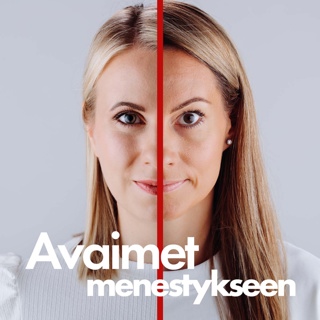
Meme Mania: How "Meme Stocks" are Reshaping the Financial Landscape
The phenomenon of "meme stocks" has profoundly impacted the financial markets, particularly epitomized by companies such as GameStop. This trend, where stocks see explosive growth in value driven primarily by social media enthusiasm rather than traditional financial metrics, has captivated and sometimes roiled the stock market. GameStop, a video game retailer, became the emblem of this movement, largely fueled by retail investors and online forums like Reddit’s WallStreetBets. The case of "Roaring Kitty," a key figure in this saga, exemplifies how social media influencers can significantly sway market prices. Roaring Kitty, whose real name is Keith Gill, was known for his persistent promotion of GameStop on various social media platforms, claiming that the stock was undervalued. His influence was so profound that during a renewed surge in interest in GameStop, the company managed to successfully complete a massive stock sale, raising over $2 billion.The "meme stock" phenomenon is an offshoot of both the democratization of financial trading brought on by easy-access trading platforms and a viral culture where the aggregation of many smaller retail investors, each propelled by the FOMO (fear of missing out) sentiment shared on social media, can collectively wield enough power to impact stock prices significantly. It's a stark shift from the usual market dynamics dominated by institutional investors.During one of its strategic moves, GameStop conducted a swift stock sale which was notably successful, managing to generate a record $2.1 billion from the sale of 75 million shares. This move was strategic in harnessing the hype around the stock, demonstrating a savvy acknowledgment of the timing and sentiment of the market.These events have sparked widespread discussions about market fundamentals, the power of collective retail trading, and regulatory concerns. The Securities and Exchange Commission (SEC) has kept a close eye on such stocks, given the volatility and the potential for market manipulation implicit in such scenarios. Nevertheless, the meme stock craizons continue, seemingly undeterred, fueling rallies, and at times, significant downturns, as seen with GameStop.In retrospect, the rise of meme stocks like GameStop underscores a shift in trading power dynamics, emphasizing how connectivity and sentiment can sometimes rival traditional financial analysis in influencing stock prices. As this trend continues, it may prompt more profound changes in market operations and regulations to adapt to this new trading landscape.This content was created in partnership and with the help of Artificial Intelligence AI
12 Kesä 20242min

"Navigating the Volatility of Meme Stocks: Risks and Rewards"
The term "meme stock" refers to shares of companies that gain rapid traction and popularity among retail investors due to viral social media movements, rather than conventional financial metrics and corporate fundamentals. Stocks like those of GameStop (GME) have epitomized the concept of a meme stock, drawing significant attention due to phenomena driven largely by forums such as Reddit's WallStreetBets.Traditionally, investment decisions are made based on an analysis of a company's financial health, growth prospects, and market position. However, meme stocks deviate from these norms, as their stock prices can be heavily influenced by social media hype, memes, and coordinated buying efforts from a large number of individual investors.GameStop's dramatic saga showcases the quintessential meme stock phenomena. Initially seen as a struggling retailer within the video game industry, it became the focus of a massive stock buying spree coordinated by retail investors who congregated online. This push was inspired, in part, by Keith Gill, also known as “Roaring Kitty,” whose endorsements and commentary fueled optimism and speculative trading amongst small investors. As the price of GME stock soared, GameStop capitalized on this surge by issuing new shares, thereby holding two notable stock sales which collectively raised over $2 billion. These strategic moves illustrate how companies labeled as meme stocks can use their newfound market attention to bolster their financial position, despite underlying business challenges.Meme stocks, though they can offer lucrative opportunities for rapid gains (sometimes speculated in viral projections of "100X Gains"), also carry substantial risks. The volatile swings in their prices, driven more by sentiment and speculation than traditional financial performance, can lead to significant losses just as quickly as massive gains. This volatility underscores the speculative nature of investing in meme stocks, where the market dynamics can shift dramatically upon shifting social media trends or investor sentiment, leading to potential market unpredictability.In this context, explaining or predicting the future of meme stock movement becomes complex. While they offer a unique study of modern market dynamics where community and technology intertwine, they also serve as a cautionary tale about the inherent risks involved in following investment trends fueled by social media rather than sound financial principles. Thus, while meme stocks might be attractive for their entertainment value and short-term profit potential, they require careful consideration and risk assessment from investors looking to dive into these turbulent market waters.This content was created in partnership and with the help of Artificial Intelligence AI
12 Kesä 20242min





















